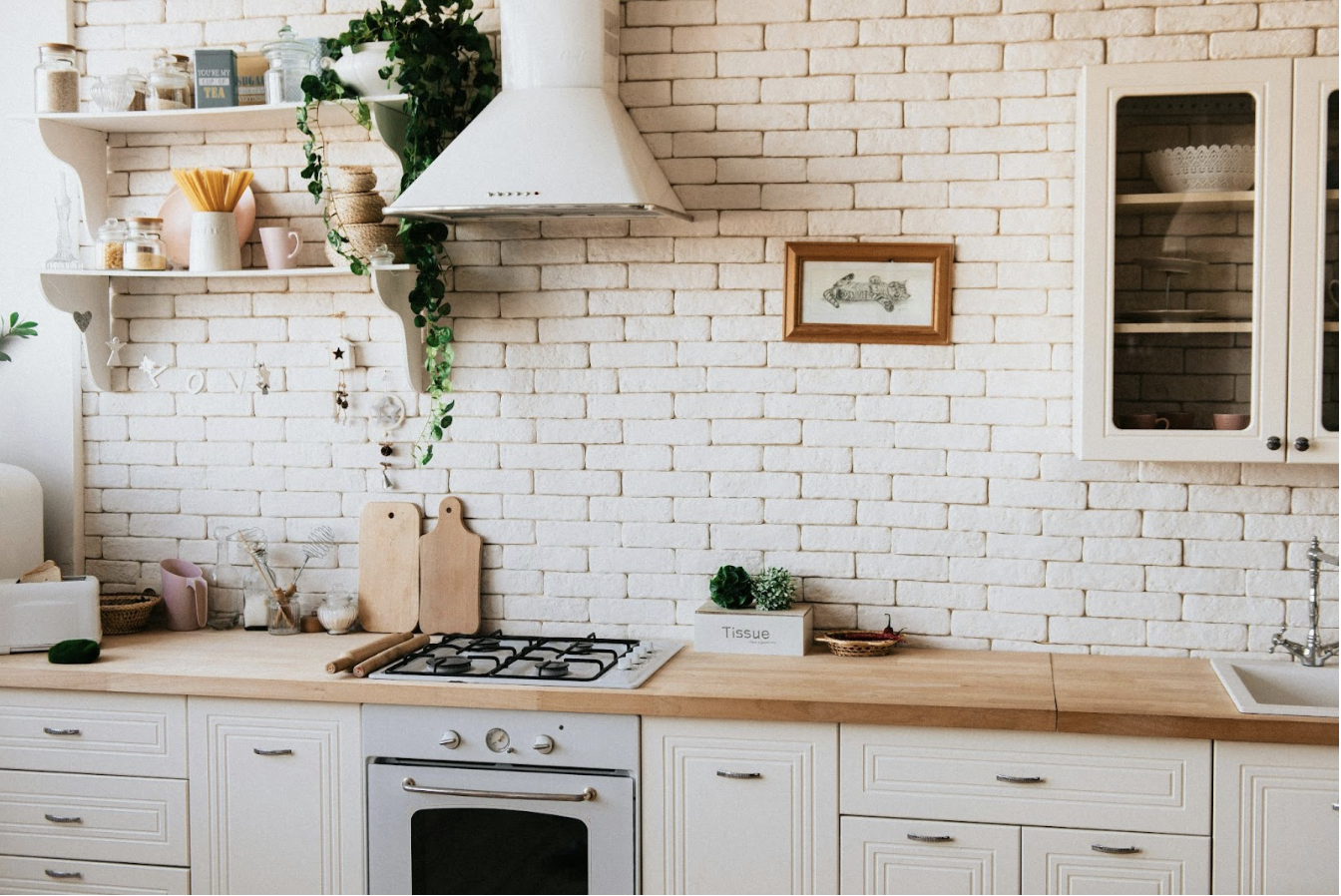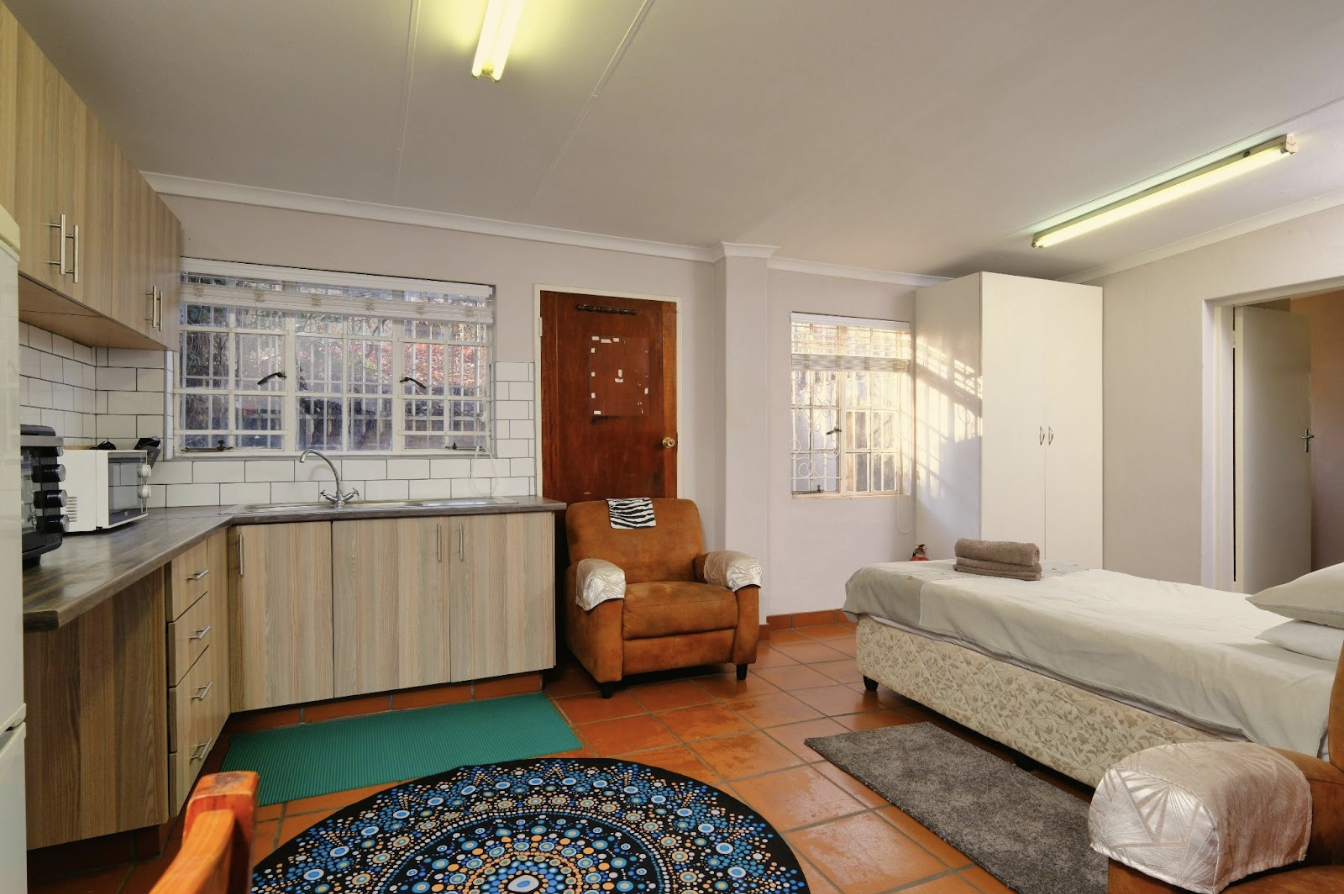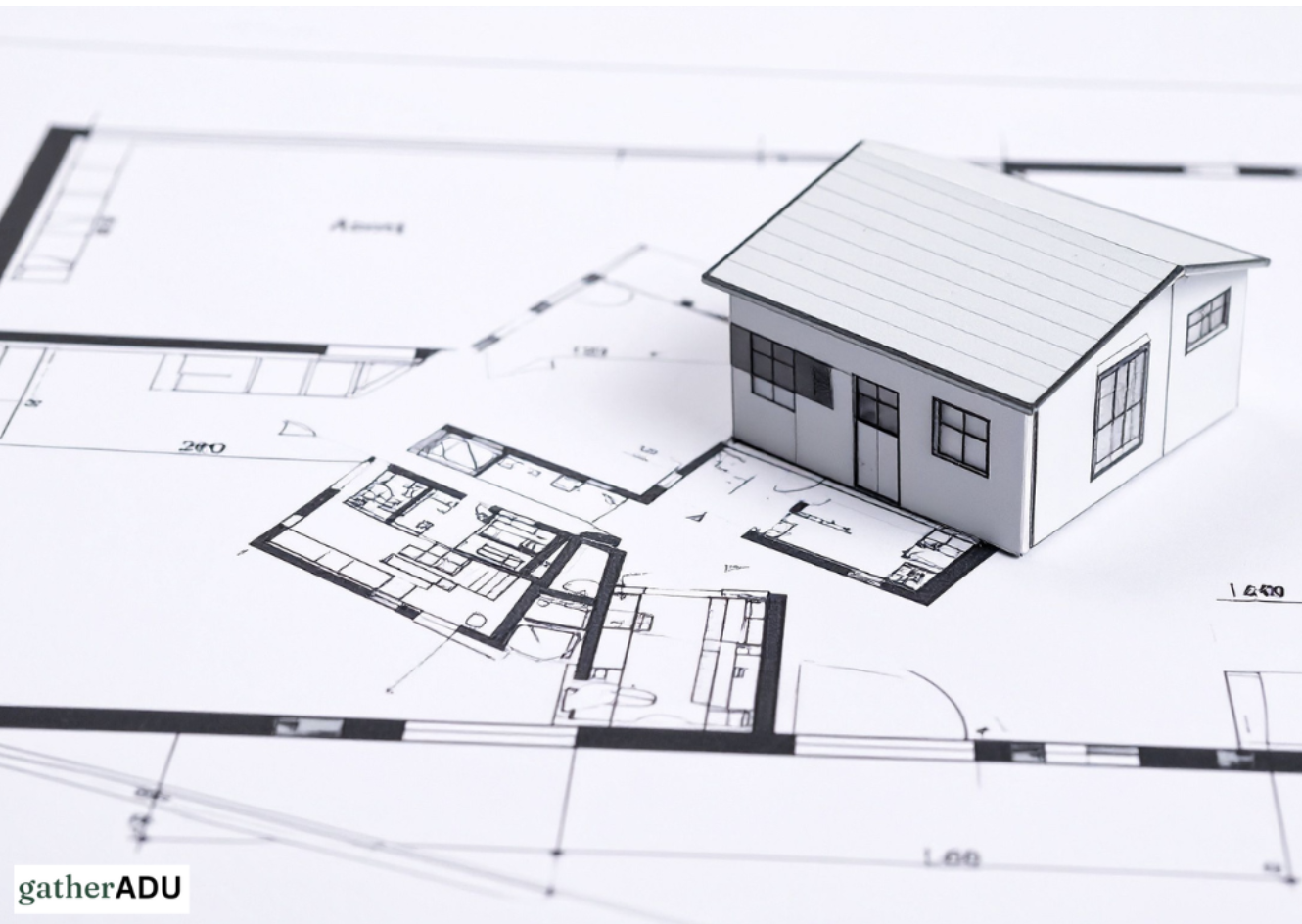Designing an Accessory Dwelling Unit (ADU) kitchen requires more than just style and function. You also need to think about accessibility. Universal design creates kitchens that are safe, practical, and comfortable for everyone, no matter their age or physical ability. Importantly, it does this without compromising elegance or quality.
At the same time, universal design enhances property value. ADUs with inclusive kitchens appeal to families, retirees, and renters. This makes them flexible and future-ready. By choosing smart layouts, adaptable features, and accessible appliances, you can design a kitchen that meets everyone’s needs today and tomorrow.
How Can Layouts Improve Accessibility?
Layouts are at the heart of accessibility. Open floor plans allow easy navigation for people using wheelchairs, walkers, or strollers. Wide pathways reduce obstacles and create a sense of spaciousness. In smaller ADUs, thoughtful layouts maximize space while ensuring movement remains safe and convenient for everyone.
Some key layout considerations include:
- Open pathways for wheelchairs and mobility aids
- Wide aisles to reduce tripping hazards
- Thoughtful placement of appliances to minimize unnecessary movement
- Flexible work zones that allow multiple users to work simultaneously
In addition, flexible work zones improve kitchen usability. For example, a triangle layout between the sink, stove, and fridge reduces steps and strain. Adjustable counter heights and multi-level surfaces also ensure comfort for users of different heights, making cooking and cleaning far easier.
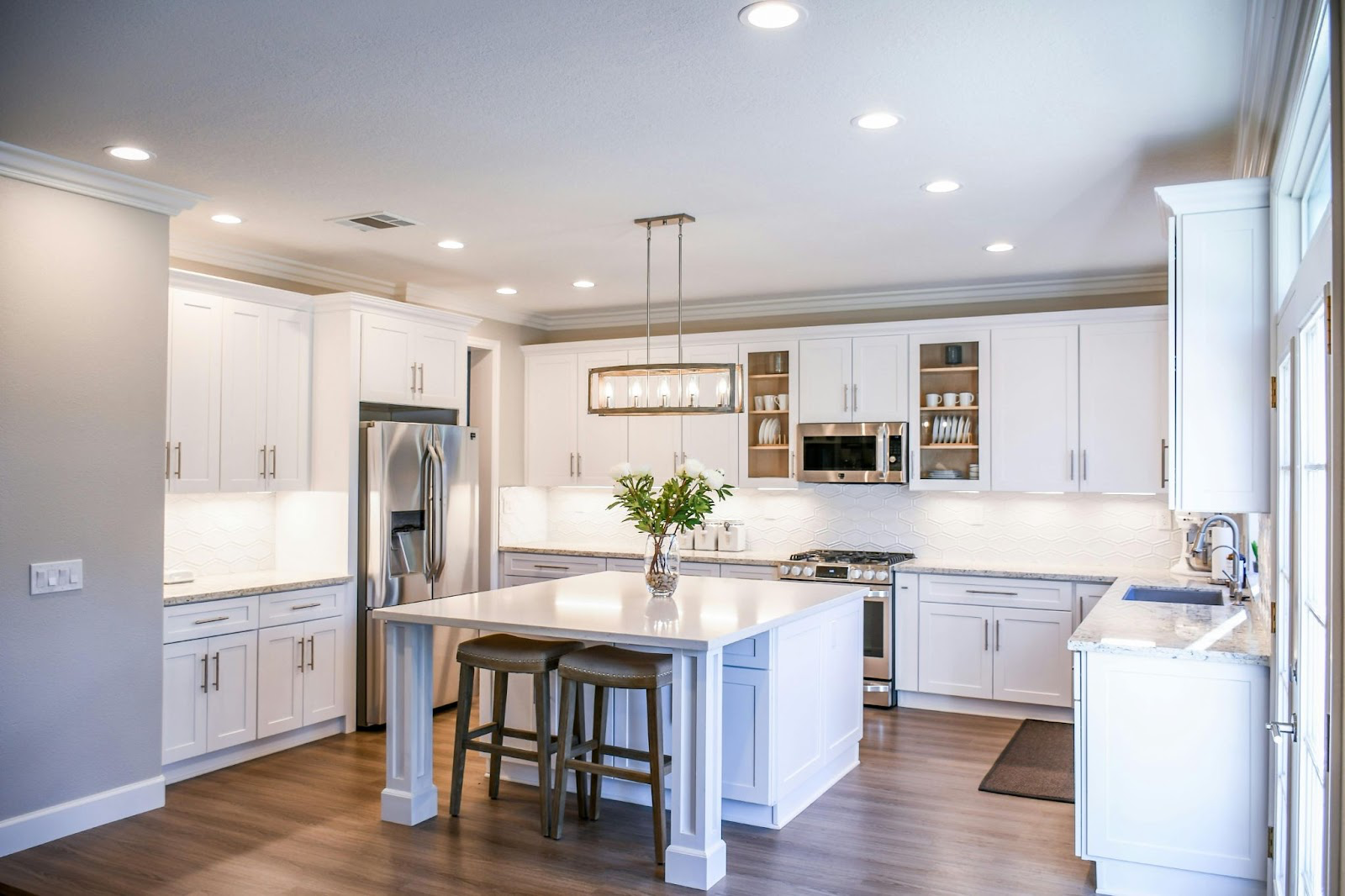
What Role Do Appliances Play in Universal Design?
Appliances have a major impact on kitchen accessibility. Side-opening ovens, drawer dishwashers, and front-control cooktops make tasks easier and safer. Smart appliances that adjust settings automatically also reduce effort and increase confidence for users of all abilities.
Additionally, appliance placement matters. For example, installing microwaves at counter height prevents heavy lifting. Placing refrigerators with bottom freezers allows better access to shelves. By planning strategically, you ensure the kitchen remains functional, safe, and efficient for everyone.
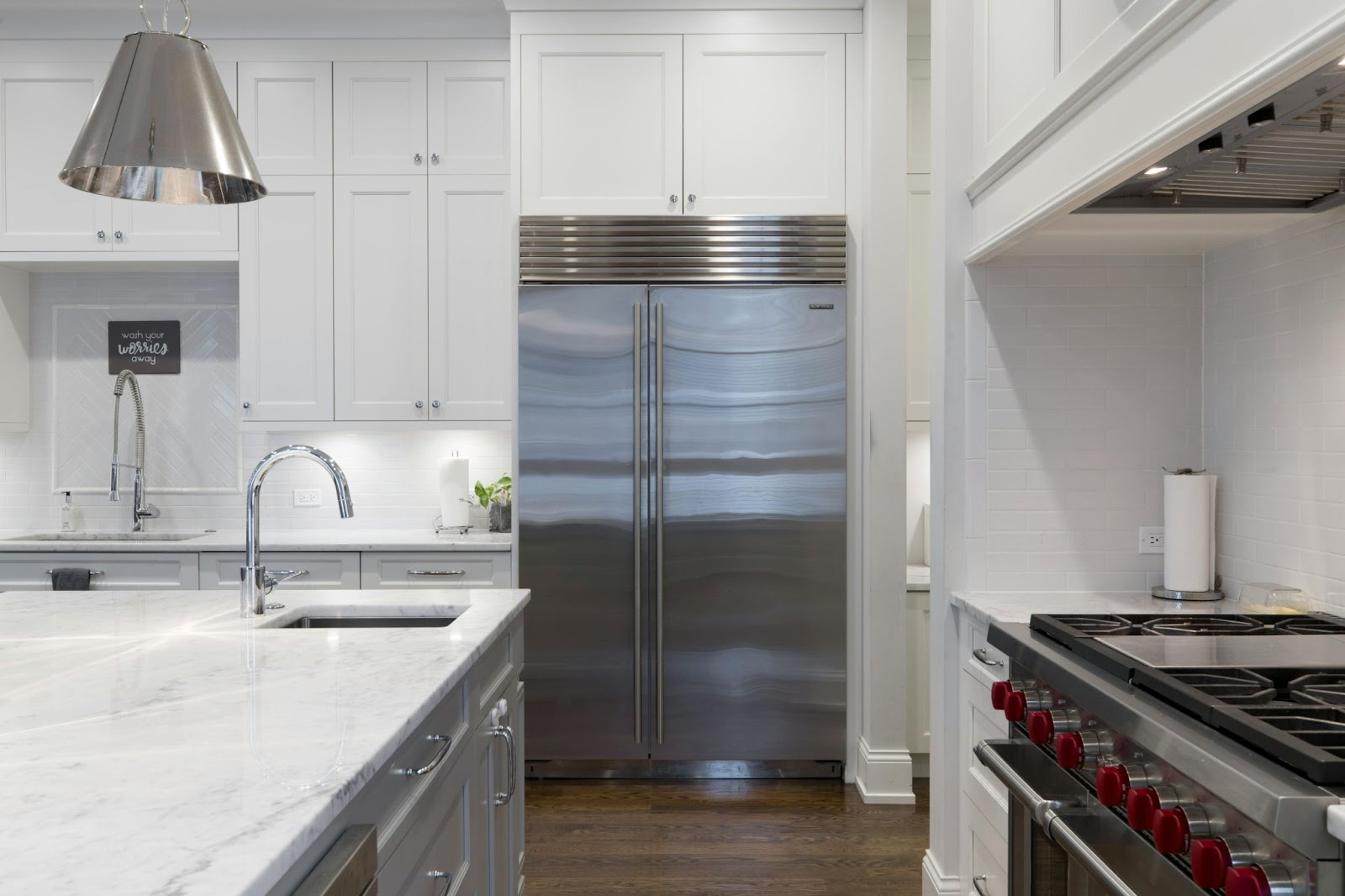
What Are the Benefits of Multi-Level Counters?
Multi-level counters add flexibility. Lower surfaces work for children, wheelchair users, and seated tasks, while higher counters fit standard cooking needs. This adaptability ensures every family member or guest feels included, no matter their height or mobility.
In addition, multi-level counters enhance efficiency. You can prepare, cook, and clean in comfortable positions without strain. This encourages longer, safer use of the space and improves the kitchen’s resale value. By planning for flexibility, you create a kitchen ready for changing needs.
How Do Universal Design Choices Add Value to ADUs?
Universal design increases both function and financial value. Buyers and renters appreciate kitchens that are safe, versatile, and inclusive. This makes ADUs with universal design features more attractive in competitive markets, especially in areas with aging populations.
To make the value clearer, here’s a quick comparison:
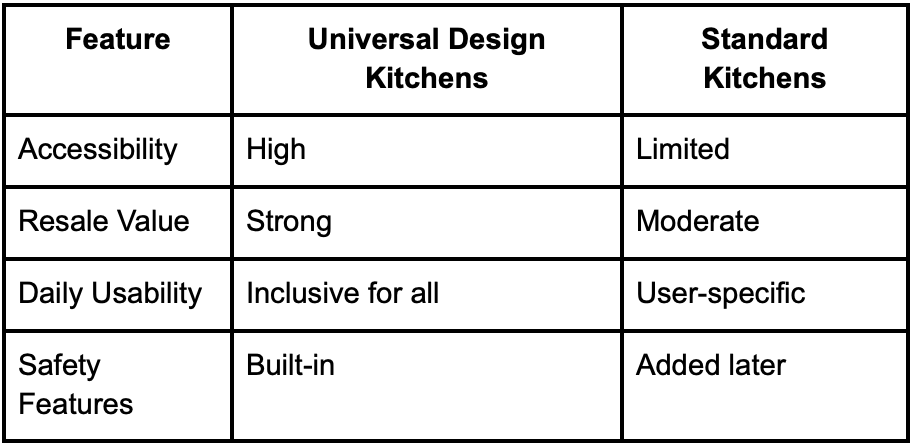
This table shows how universal design outperforms traditional planning in both practicality and market value.
What Common Misconceptions Exist About Universal Design?
One common misconception is that universal design looks too clinical. However, in reality, modern universal kitchens use high-end finishes, sleek appliances, and innovative storage solutions. Moreover, these spaces feel luxurious while being highly practical for everyday use.
Another misconception is that universal design always costs much more. While it is true that some features may add upfront expenses, they often reduce long-term costs.. In fact, resources from the U.S. Access Board highlight how accessibility standards can benefit long-term usability and safety.
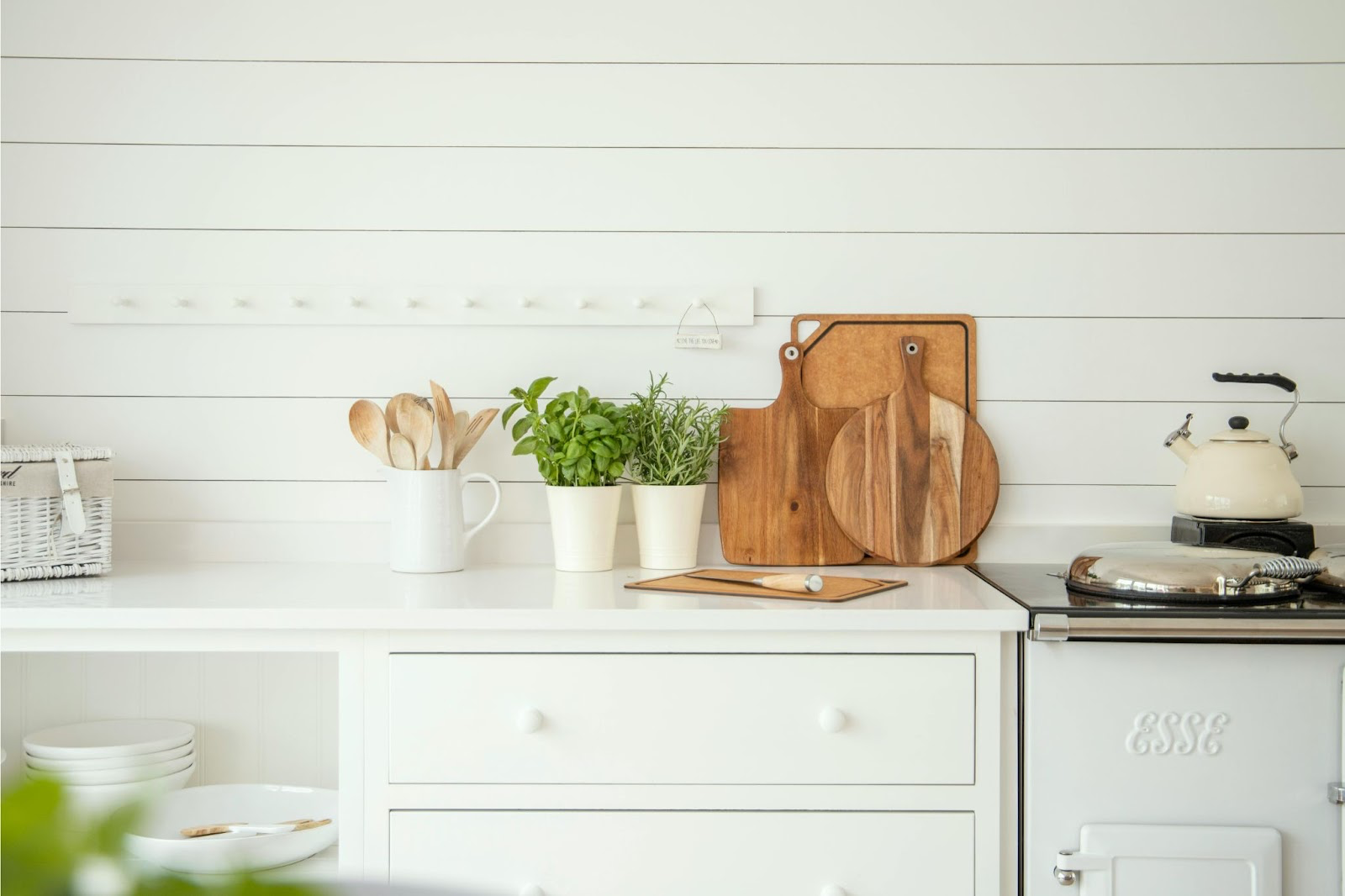
Ready to Design Your ADU Kitchen Without Compromise
Many homeowners worry that accessibility will limit design choices. They fear kitchens will look less stylish or too functional. Unfortunately, this hesitation often leads to missed opportunities, unnecessary remodels, or spaces that do not work for every family member.
The solution is thoughtful universal design. At Diamonds by Raymond Lee, we help you blend beauty with accessibility in ADU kitchens. With our guidance, you achieve comfort, safety, and long-term value in one design. Together, we can create a kitchen that works for everyone, without any compromise.
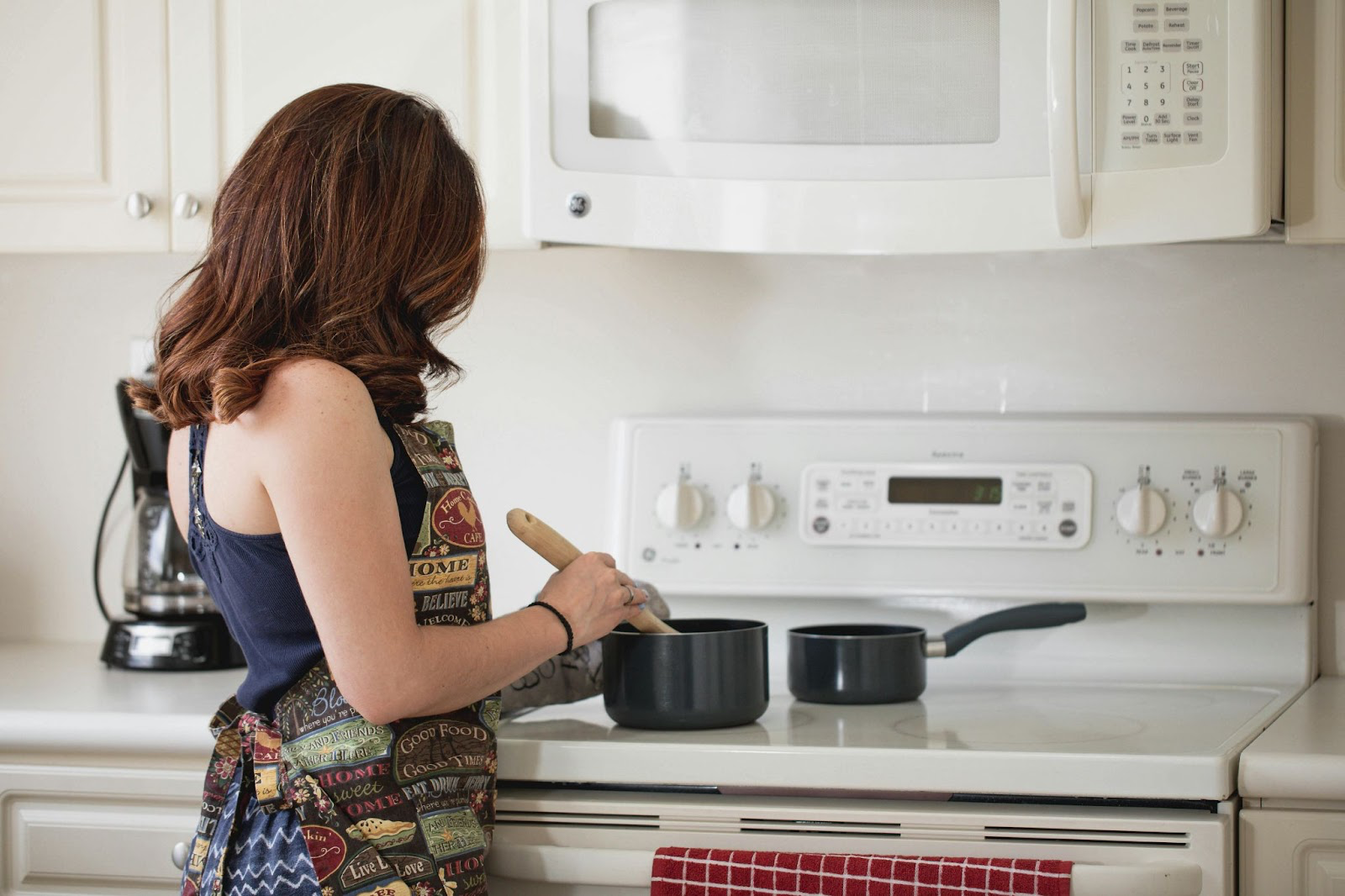
FAQ’S
What is the biggest advantage of universal design in kitchens?
Yes, the biggest advantage of universal design is that it makes kitchens usable for everyone. Moreover, it eliminates barriers through flexible layouts, accessible storage, and built-in safety features. Therefore, this inclusivity supports seniors, children, and people with mobility challenges while also adding lasting property value.
Do universal design kitchens look less stylish?
No, universal design kitchens remain stylish because they use modern finishes, smart appliances, and sleek layouts. In addition, multi-level counters, pull-out storage, and under-cabinet lighting blend accessibility with beauty. Therefore, these thoughtful details ensure you maintain elegance and luxury, even while prioritizing functionality and inclusivity.
Is universal design only for people with disabilities?
No, universal design is not just for people with disabilities. Instead, it benefits everyone by making kitchens safer, easier, and more practical. Importantly, families with children, aging parents, and renters all enjoy the convenience, ergonomic layouts, and flexible features that universally designed kitchens provide every day.
Are universal design kitchens more expensive?
Yes, universal design kitchens may have slightly higher upfront costs due to features like adjustable counters or pull-out shelving. However, these costs balance out over time. In fact, they reduce remodeling expenses, prevent accidents, and improve resale value, making them a smart, future-ready investment.
Can I add universal design features to an existing ADU kitchen?
Yes, universal design features can be added to an existing ADU kitchen without requiring a full remodel. For example, pull-out shelves, lever handles, under-cabinet lighting, and drawer dishwashers improve accessibility. Therefore, these upgrades make kitchens safer and more comfortable while preserving their style.
